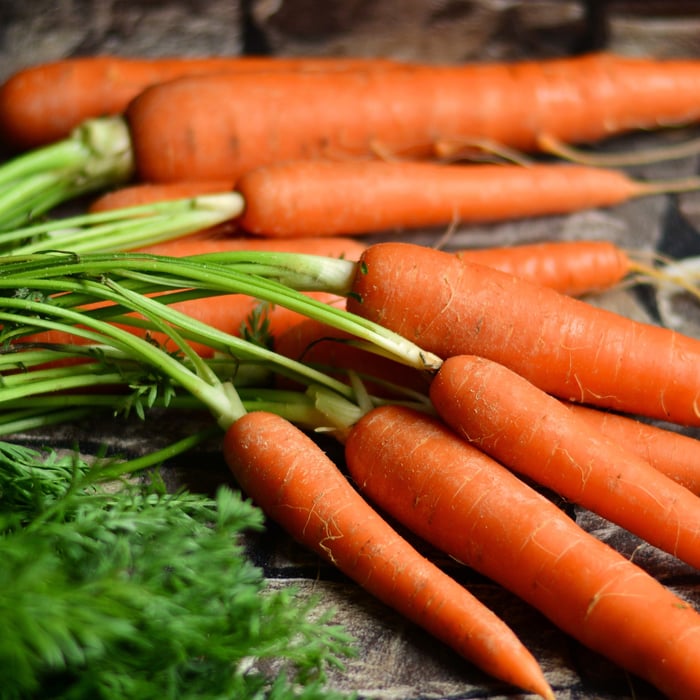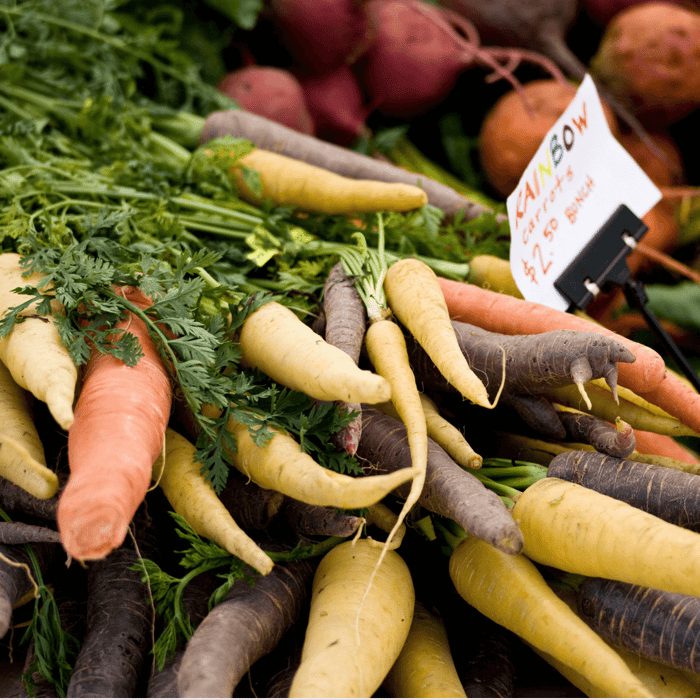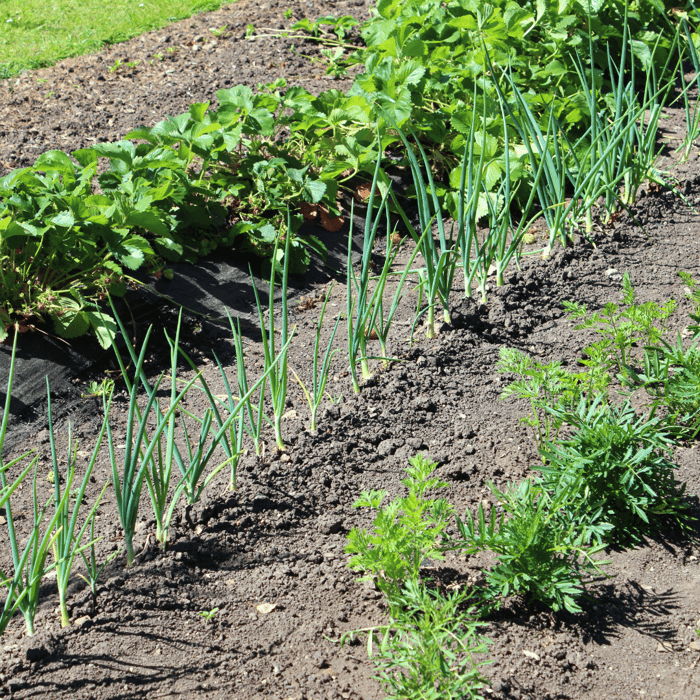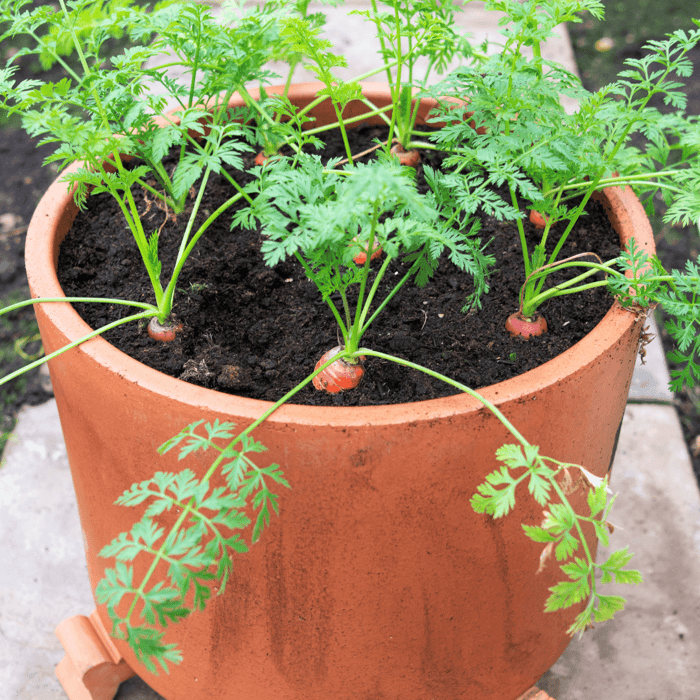Carrots are a delicious and nutritious root vegetable quickly grown in Georgia's climate. They are an excellent season crop that is generally easy to grow and maintain, making them a popular choice for many gardeners. This blog post will discuss how to grow carrots in Georgia, including the type of carrots to plant, when and how to sow carrot seeds, and how to harvest them.
Choosing the Right Type of Carrots
The first step to growing carrots in Georgia is choosing the right carrot seeds to plant. There are many different varieties of carrots, each with its unique flavor, texture, and size. Some popular carrots include Nantes, Danvers, Chantenay, and Imperator. Each type has strengths and weaknesses, so choosing the one that best suits your needs isis essential.
For Georgia, we recommend planting Chantenay Red Core carrots. These carrots are a shorter variety that grows to around 5 inches tall and 2 inches in diameter. They are ideal for growing in Georgia because they can tolerate the heat and drought that often occurs during summer.
Carrot Seeds For Planting | 5 Variety Pack

$9.95
Grow Your Own Carrots: 5 Carrot Seeds Variety Pack – Heirloom, Non-GMO, Open-Pollinated Introducing our 5 Carrot Seeds Variety Pack – a premium collection of heirloom carrot seeds designed for gardeners who want to grow fresh, vibrant, nutrient-packed carrots right… read more
Preparing the Soil
Before planting your carrot seeds, properly preparing the soil is essential. Carrots grow best in loose, well-draining soil, so it's important to till the soil to a depth of at least 12 inches. If you have heavy clay soil, you may consider adding some organic matter, such as compost or aged manure, to improve the soil's texture and drainage.
If you're planting your carrots in raised beds, ensure the soil is deep enough for proper root development. Carrots need at least 6 inches of soil to grow properly, so a raised bed at least 12 inches deep is recommended.
Sowing the Carrot Seeds
When planting your carrot seeds, sow them 1/4 inch deep in the soil. This depth is essential to ensure good seed-to-soil contact and proper germination. Plant the seeds about 1 inch apart and then thin them out to 3-4 inches apart once they are a few inches tall.
It's essential to pay attention to the spacing between the carrot plants. If the plants are too close together, they will compete for nutrients and water, resulting in smaller carrots. You will have wasted space in your garden if they are too far apart.
Growing Carrots
Once you've sowed your carrot seeds, taking care of them is essential. Carrots are an excellent season crop, so they should be planted in early spring or fall. Ensure to keep the soil moist but not too wet, as too much water can cause the seeds to rot or the carrots to split.
As the carrots grow, you may notice that their leaves are getting taller. This is normal and is a sign that the carrots are developing correctly. Keep the area around the carrots weed-free to prevent competition for nutrients and water.
Harvesting Carrots
Carrots are ready to harvest when they are around 1-2 inches in diameter. However, you can leave them in the ground longer if you want more giant carrots. To reap the carrots, gently pull them from the soil by the tops. If the carrots are difficult to pull out, you can use a garden fork to loosen the dirt around them.
Once you've harvested your carrots, remove the carrot tops. The tops can be composted or used in recipes, but they will cause the carrots to lose moisture more quickly.
In conclusion, growing carrots in Georgia is a simple process that can yield delicious and nutritious results. By choosing the right type of carrots, preparing the soil properly, sowing the carrot seeds correctly, and taking care of the carrots as they grow, you can ensure a bountiful harvest of sweet and flavorful root vegetables.
Scarlet Nantes Carrot Seeds

$2.49
Scarlet Nantes Carrot Seeds - Heirloom, Non-GMO, Open-Pollinated, Non-Hybrid | Sweet & Tender Carrots for Home Gardens Grow deliciously sweet and tender carrots with our Scarlet Nantes Carrot Seeds, perfect for home gardens, raised beds, and small-scale farming. These heirloom,… read more
Tips for Growing Carrots in Georgia
Here are a few additional tips to keep in mind when growing carrots in Georgia:
-
Choose the right time to plant: Carrots are an excellent season crop, so they should be planted in early spring or fall. In Georgia, you can grow carrots in February-March or September-October.
-
Provide adequate water: Carrots need consistent moisture to grow properly, so water them regularly. However, be careful not to overwater, as this can cause the carrots to rot.
-
Thin the seedlings: Once the carrot seedlings are a few inches tall, thin them out to 3-4 inches apart. This will ensure that each plant has enough space to grow properly.
-
Use a light hand when weeding: Carrots have shallow roots, so it'sessentialt to be gentle when weeding around them to avoid damaging the roots.
-
Watch out for pests: Carrots are vulnerable to several problems, including carrot rust flies, aphids, and nematodes. Look for any signs of infestation and take action as needed.
Final Thoughts
Growing carrots in Georgia is a rewarding experience that can yield delicious and nutritious results. You can ensure a bountiful harvest of sweet and flavorful root vegetables by choosing the right type of carrots, preparing the soil properly, sowing the seeds correctly, and taking care of the carrots as they grow.
Whether planting your carrots in raised beds or the ground, pay attention to the spacing between the plants and provide them with consistent moisture and care. With a little effort and patience, you'll soon enjoy fresh, homegrown carrots from your garden.
Vegetable Seed Vault Kit | 35 Variety Pack

$29.95
$49.95
Ultimate Survival Seed Vault: 16,000+ Non-GMO Heirloom Vegetable Seeds for Emergency Preparedness Introducing the Seed Vault Kit, your all-in-one solution for emergency preparedness and sustainable gardening. This premium seed kit contains over 16,000 non-GMO, Heirloom, Non-Hybrid, and Open Pollinated seeds,… read more







